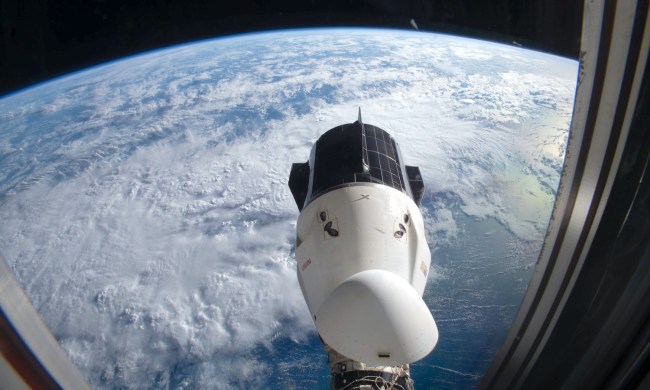A new study of astronauts who worked on the International Space Station (ISS) shows that spending time in space caused their brains to grow in size. But if you’re hoping that spending some time in space could boost your IQ, afraid not. A person’s intelligence is not related to the volume of their brain. In fact, changes to brain volume can indicate that a brain is unhealthy in some way.
In the case of the astronauts, the increase in brain volume was likely caused by the way microgravity affects fluid in the body. Normally, on Earth, our heart and other systems have to push fluids like blood up against the force of gravity. So blood will naturally flow down into your legs, but it has to be given a helping push to get it up to your upper body and head.
In an environment like the ISS where there is no gravity, blood and other fluids are not naturally drawn to the lower body. But our bodily systems continue to push fluids into our upper body. This results is fluids pooling in the upper body and head, which has a range of known side effects including the development of a puffy face and worsening eyesight.
The latest study indicates that this pooling affects the brain too. “That movement of fluid toward your head may be one of the mechanisms causing changes we are observing in the eye and intracranial compartment,” lead author of the study, Professor Larry Kramer from the University of Texas Health Science Center, explained in a statement.

The experiment looked at 11 astronauts, using magnetic resonance imaging (MRI) to capture an image of their brains before and after they spent time on the ISS. They found that not only were there increases in the astronauts’ brain and cerebrospinal fluid (CSF) volume after spending time in space, but also that these changes persisted for a year after they returned to Earth. This suggests the changes may be permanent.
“What we identified that no one has really identified before is that there is a significant increase of volume in the brain’s white matter from preflight to postflight,” Professor Kramer said. “White matter expansion in fact is responsible for the largest increase in combined brain and cerebrospinal fluid volumes postflight.”
The findings are published in the journal Radiology.



